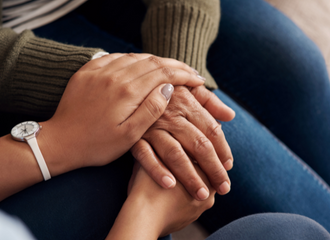
Individuals being discharged from our treatment programs at The Renfrew Center commonly say, “I just want to be treated normally.” Often peers and family members “walk on egg shells” when the individual returns home because they are uncertain what to say or do to be helpful. However, it does get easier over time. This post reviews tips that teachers, community leaders, peers, and families can utilize to help make this process more comfortable for everyone involved.
How to Help
You might feel anxious about a peer returning to school, work or the community after being treated for an eating disorder. This is a normal feeling. It is important to realize that people with eating disorders have heightened sensitivity around food, weight and exercise. Although they worked on these issues in treatment, no one who leaves a treatment program is “completely recovered” immediately because recovery is a process. Your patience and understanding can be extremely helpful to the person in recovery.
Avoid
“You look great.”
“You look healthy.”
“Now that you gained/lost weight, you look much healthier.”
“You’re eating a lot better now.”
Why?
Comments about weight loss may or may not be taken as a compliment; comments about weight gain may be seen as criticism.
Focusing on how or what they are eating may make them angry and think that’s all you care about.
Instead, Try…
“I missed you while you were gone.”
“Let me catch you up on some things that happened while you were gone.”
“When I used to hug you my heart would break. I’m happy to see you stronger.”
Avoid
Giving special attention to them.
Walking on egg shells around them.
Why?
They want to feel as “normal” as possible when they comes back.
Instead Try…
“If you want to talk about your experience while you were gone, I’m here for you.”
Avoid
“You are so much pushier now.”
Why?
A big part of recovery involves learning to assert one’s needs. As a result, there may be times when your they you not to talk about food, exercise or weight around them; this doesn’t mean you have to avoid these topics all the time, but please be considerate and respectful of their requests.
Instead, Try…
“Thanks for the feedback. I get confused about what is and isn’t okay to talk about. It really helps when you tell me.”
“I love talking with you about (a band, TV show, etc.). You seem much more alive and interested in lots of things now.”
Avoid
“I hate my body.”
“I just ate a huge meal. I need to go exercise it off.”
“I used to be a size 6; now I am a size 8. I’m a cow.”
Why?
Sometimes people unintentionally
encourage behaviors that promote eating disorders by things they say or do. It’s important to watch your own behaviors.
Instead, Try…
“I’m not feeling great about my body today. Actually now that I think about it, I feel angry about breaking up with my boyfriend and I’m taking it out on my body rather than talking about it.”


